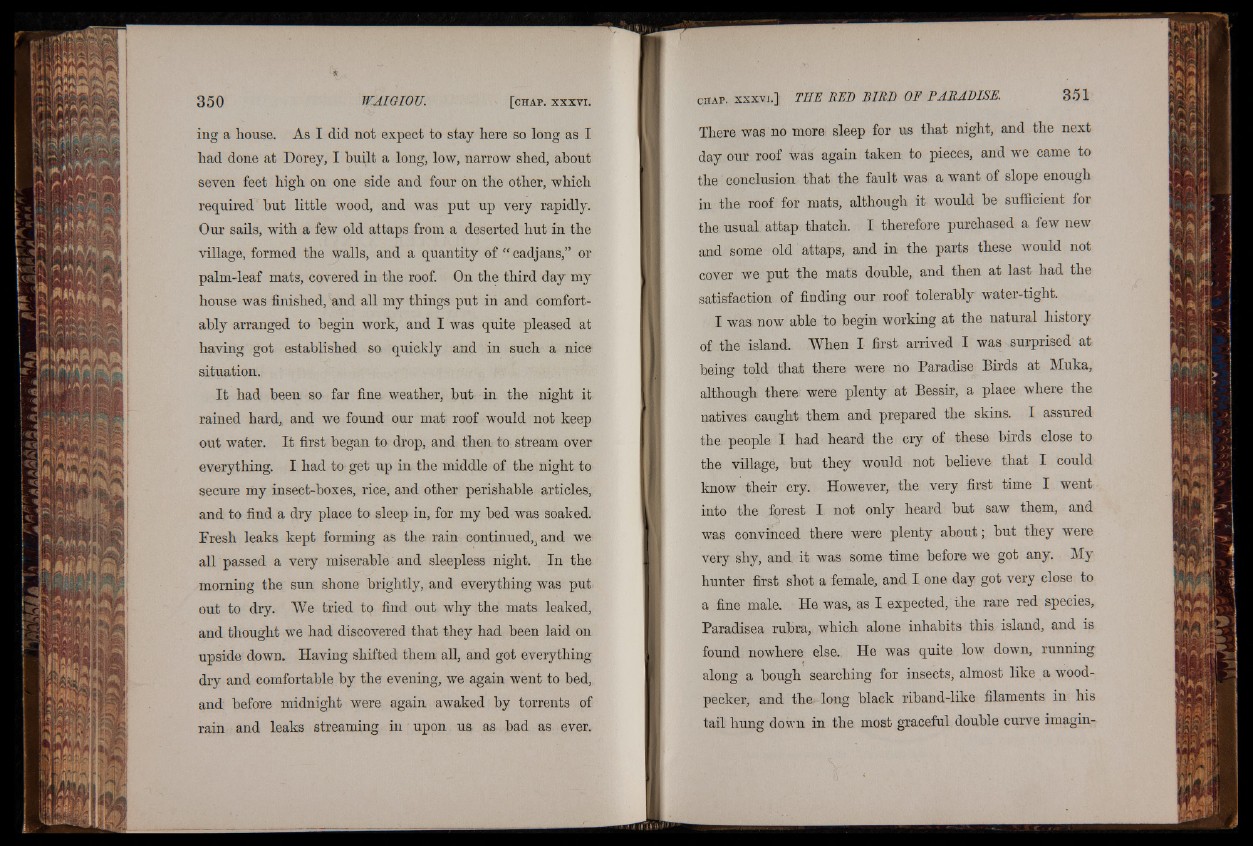
ing a house. As I did not expect to stay here so long as I
had done at Dorey, I built a long, low, narrow shed, about
seven feet high on one side and four on the other, which
required but little wood, and was put up very rapidly.
Our sails, with a few old attaps from a deserted hut in the
village, formed the walls, and a quantity of “ cadjans,” or
palm-leaf mats, covered in the roof. On the third day my
house was finished, and all my things put in and comfortably
arranged to begin work, and I was quite pleased at
having got established so quickly and in such a nice
situation.
It had been so far fine weather, but in the night it
rained hard, and we found our mat roof would not keep
out water. It first began to drop, and then to stream over
everything. I had to get up in the middle of the night to
secure my insect-boxes, rice, and other perishable articles,
and to find a dry place to sleep in, for my bed was soaked.
Fresh leaks kept forming as the rain continued^ and we
all passed a very miserable and sleepless night. In the
morning the sun shone brightly, and everything was put
out to dry. We tried to find out why the mats leaked,
and thought we had discovered that they had been laid on
upside down. Having shifted them all, and got everything
dry and comfortable by the evening, we again went to bed,
and before midnight were again awaked by torrents of
rain and leaks streaming in upon us as bad as ever.
There was no more sleep for us that night, and the next
day our roof was again taken to pieces, and we came to
the conclusion that the fault was a want of slope enough
in the roof for mats, although it would be sufficient for
the usual attap thatch. I therefore purchased a few new
and some old attaps, and in the parts these would not
cover we put the mats double, and then at last had the
satisfaction of finding our roof tolerably water-tight.
I was now able to begin working at the natural history
of the island. When I first arrived I was surprised at
being told that there were no Paradise Birds at Muka,
although there were plenty at Bessir, a place where the
natives caught them and prepared the skins. I assured
the people I had heard the cry of these birds close to
the village, but they would not believe that I could
know their cry. However, the very first time I went
into the forest I not only heard but saw them, and
was convinced there were plenty about; but they were
very shy, and, it was some time before we got any. My
hunter first shot a female, and I one day got very close to
a fine male. He was, as I expected, the rare red species,
Paradisea rubra, which alone inhabits this island, and is
found nowhere else. He was quite low down, running
along a bough searching for insects, almost like a woodpecker,
and the long black riband-like filaments in his
tail hung down in the most graceful double curve imagin